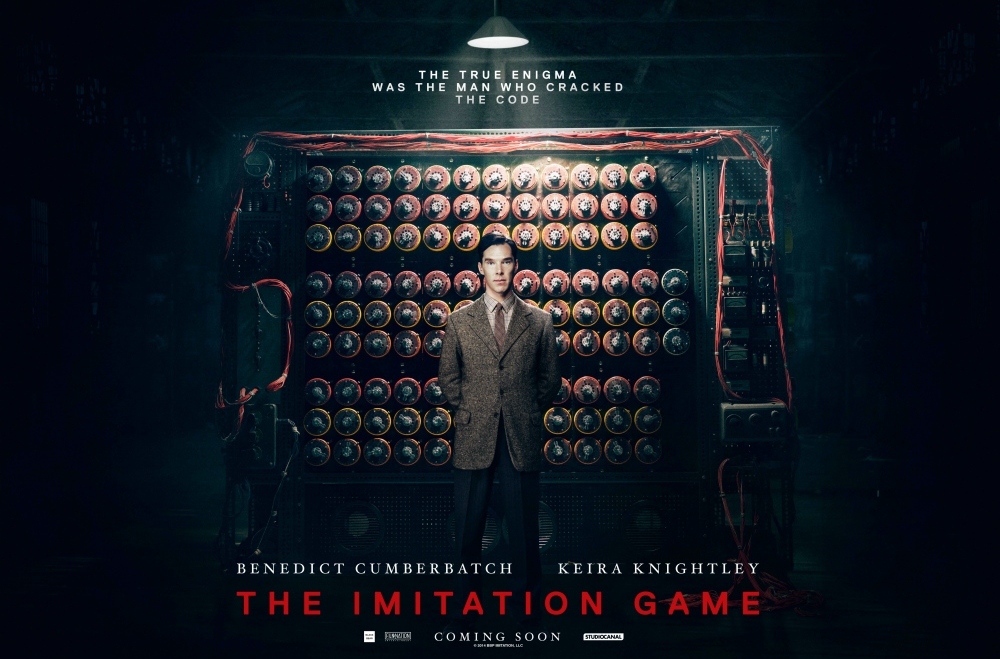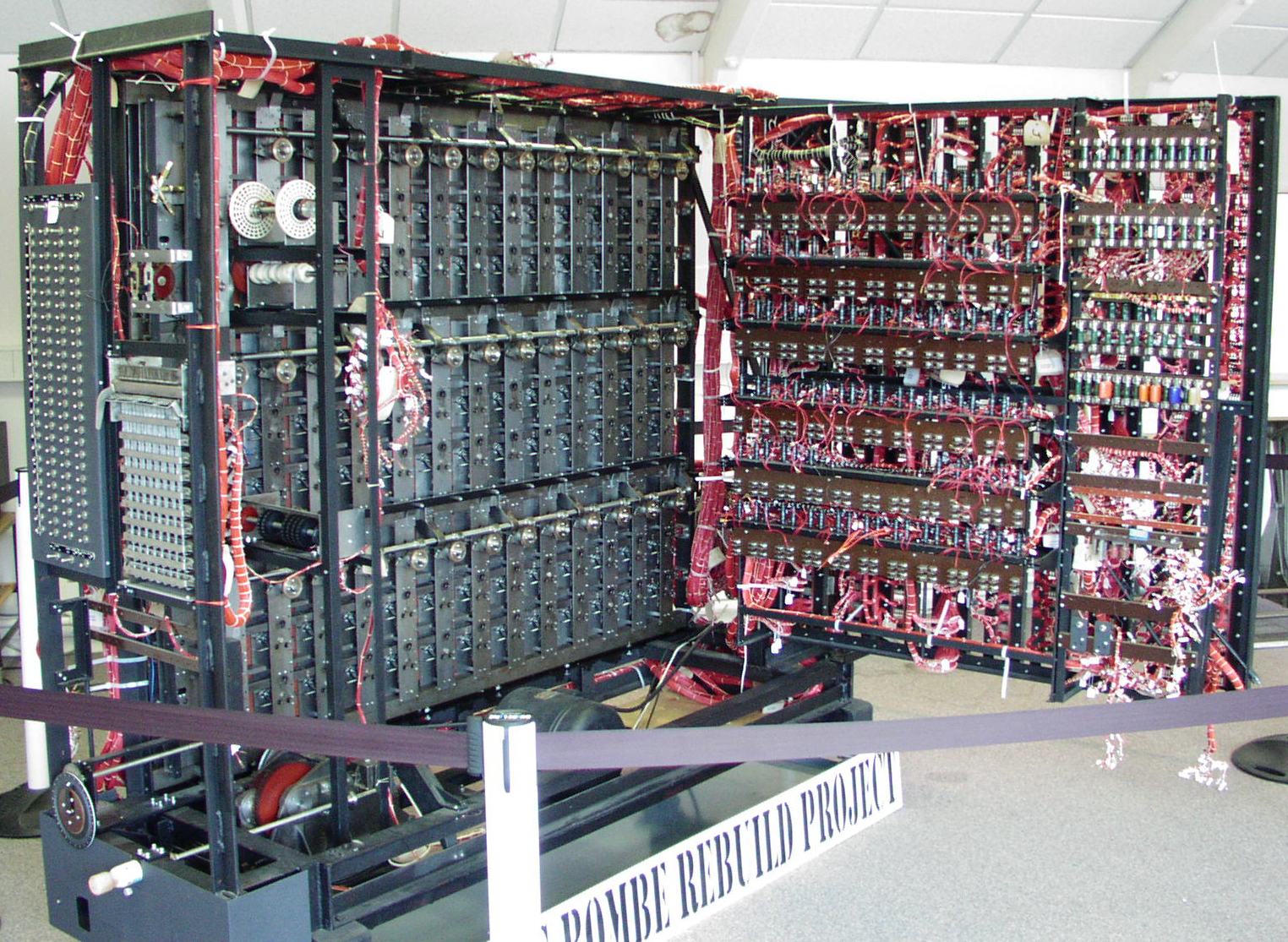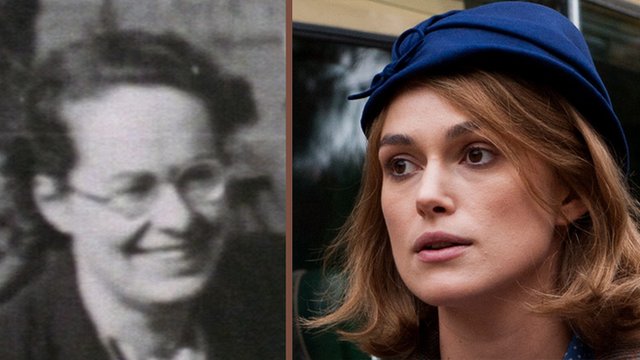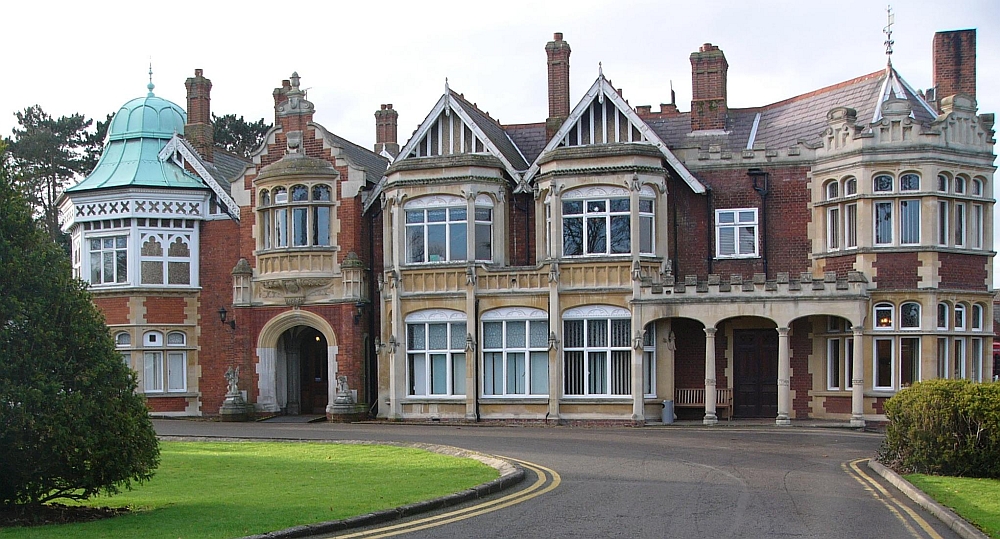My review of The Imitation Game

Considering my fascination with the history of computing, it took me much longer to see this movie than I had expected. I suspect if you haven’t seen it by now you probably don’t plan on doing so, however I’m going to provide my first ever movie review for this site.
The Imitation Game is the story of Alan Turing, the brilliant British mathematician who is considered the father of computer science and was responsible for developing the Bombe, a gigantic machine whose sole purpose was to crack the Enigma code used by the Nazis in World War II.
The Enigma codes were generated anew on a daily basis using an Enigma machine, and although I hardly wish to credit the Nazis with anything, the concept was brilliant. By adjusting the codes daily, even if the day’s code was cracked, that knowledge would be useless the following day. It would require something quite advanced in order to break an ever changing code, especially in the 1940s.
Enter Princeton-educated, and King’s College Fellow Alan Turing, considered one of the most brilliant mathematical minds in history. Recruited to work at Bletchley Park – the center of Britain’s code-cracking efforts – and devise a means for breaking the Enigma, his few other colleagues tried to find patterns manually, while Turing, knowing that was impossible, began developing a machine that could do the work quickly and redo it every day.
Turing was an eccentric, confused by and afraid of social interaction, especially the idea that what people said wasn’t always what they meant, as in a scene about lunch mentioned below. Because of this, while he was loosely tolerated by his peers at Bletchley, they began to feel he was wasting time on his fool’s-errand machine, and could even be held responsible for any Allied deaths that took place in each new 24-hour period because he wasn’t directly helping them break the Enigma.
In that day and age, it was very difficult to convince people of the fact that it was much better to tackle problems such as this with machinery as opposed to manpower, even if you showed them the numbers. Regardless, his peers, now realizing his genius, sided with him when the government wanted to shut him down, and he was ultimately successful in cracking the code, shortening the length of the war by two to four years, and perhaps turning the tides of history that would otherwise have seen the world under Nazi occupation.
Of course, there is also the well-known issue of his personal life. Alan Turing was homosexual, a criminal offense in Britain until 1968, and was forced to undergo chemical castration. It was a year after that treatment began that he took his own life.
The movie does a very good job of illustrating all of this. Interspersed with memories of his first love when he was younger, the outcome of which altered his thought process on life, religion and humanity, as well as a later investigation by a well-meaning police officer which exposed his lifestyle, it shows his difficulty in interacting with others, his brilliance often unrecognized by those who are supposed to be on his same side, and even when he is making progress the very people who recruited him seem intent on shutting him down.
His difficult personality is highlighted particularly well in two different scenes; one in which he is told everyone is going to lunch, which he sees as a statement of fact and therefore offers no response when it is in fact an invitation, a nod to his inability to understand the subtleties of human interaction, and the second when he asks Joan Clarke, his only female colleague, to marry him not out of love, but solely so she will stay on the project and not return home to her parents.
The movie doesn’t focus too much on the actual construction or workings of the machine, which from my perspective is unfortunate, but makes sense as a movie. Watching the cylinders of the Bombe turn it looks like it’s using a standard puzzle-solving approach (every possible position in order), however it was much more complicated than that, especially considering nothing was standardized back then.
Some reviews I read felt that the movie was overly dramatic, but I didn’t find that to be the case. It’s well known that he did ride a bike, that he was a marathon runner, and that he was exceptionally eccentric. The movie conveyed this well, along with his difficulty fitting in because of it. Even so, it focused solely on his time at Bletchley, and made no mention of his time at Princeton or the Lorenz cipher which he was also instrumental in breaking, and it mentioned only tangentially his earlier groundbreaking research and publications.
Even so, I felt it did quite a good job of portraying that particular time, in that particular place, with those particular people, and the interactions that made it work, as well as almost-not work.
I would absolutely recommend it, but I’m biased. As a technology historian it was fascinating. As a movie I think it’s also very good, although the nature of the subject matter – the development of a complex 1940’s codebreaking machine – may not be for everyone. But we owe it to him that we’re not living under the Nazis right now.
On a side note, there is something known as “The Turing Test,” in which an observer, having a conversation with a person and with a machine, tries to determine which is the person and which is the machine. If the person is unable to figure out which is which, the machine is said to have passed the Turing Test. A well-known international competition is still held to put machines to this test, and we have something similar known as a CAPTCHA, in which we are asked to enter words into a website so it knows we’re a person. The “T” in CAPTCHA stands for Turing. These are, obviously, named after Alan Turing, however he had a different name for the test: he called it The Imitation Game.
And Benedict Cumberbatch looks just like Alan Turing. Really, the similarity is remarkable.




